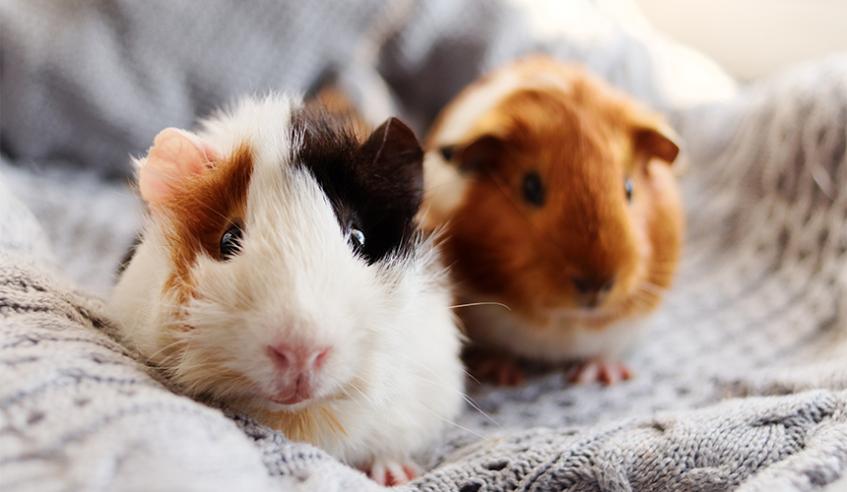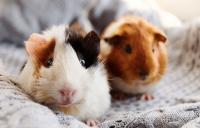
What to consider before adopting or buying a Guinea pig
Small, squeaky and very cute, Guinea pigs are sociable rodents originating from South America. However, despite having been commonly kept as pets for many years, a lot of people still have the misconception that they are ‘starter’ animals for children. In fact, Guinea pigs do require quite a bit of care in order for them to stay happy and healthy.
If you plan to get a Guinea pig, make sure you have suitable accommodation for them. They will need a secure hutch or living space where they are safe from both weather and predators. They will also need space to exercise full of toys and hidey holes to keep their mind and body active.
Wherever you choose to house your Guinea pigs, you must make sure the area is free from both draughts and extreme heat because they are very sensitive to changes in temperature. In temperatures under 15°C they must be housed indoors as cold weather can make them very unwell.
Guinea pigs need continuous access to fresh water, fresh vegetables or grass on a daily basis and pellets to ensure they do not suffer from Vitamin C deficiency.
Ideally, Guinea pigs should be kept in pairs as they are very social animals. In the past, they were often kept with rabbits. However, rabbits are much larger than Guinea pigs and could bully them or injure them by accident. If you are keeping your Guinea Pig as a single animal, then you must ensure you spend a lot of time with it to fulfil its need for social interaction.
Some breeds of Guinea pigs have long coats, which need regular grooming by their owners to prevent matting or other issues.
Where should you buy a Guinea pig from?
If you’re considering a Guinea pig as your next companion, why not visit your local Scottish SPCA animal rescue and rehoming centre? We usually have several little piggies looking to go all the way home!
If you do decide to buy a Guinea pig, make sure it’s from a responsible breeder or pet shop. Be wary of buying any animal online as sellers can hide their identity on the internet and, in many cases, have no concern for the animals they are selling.

